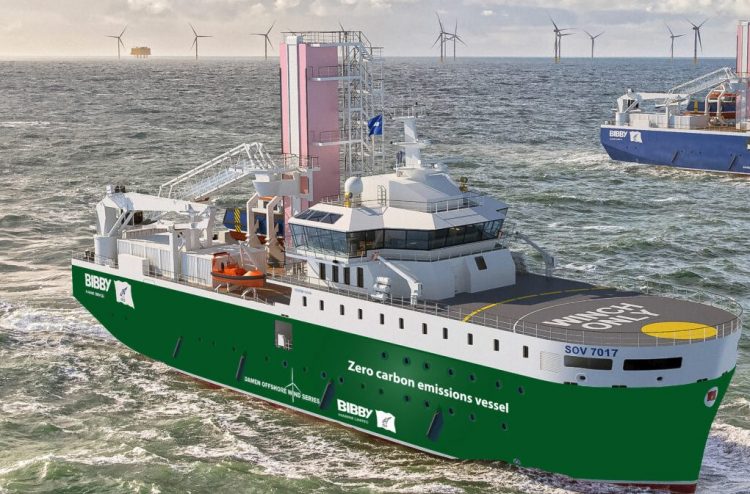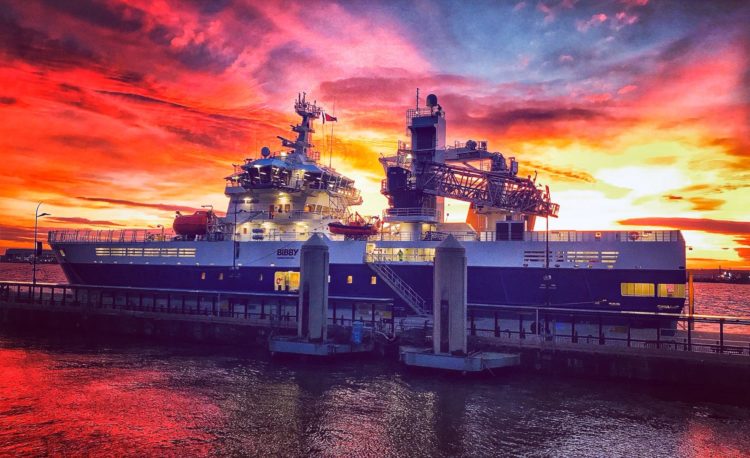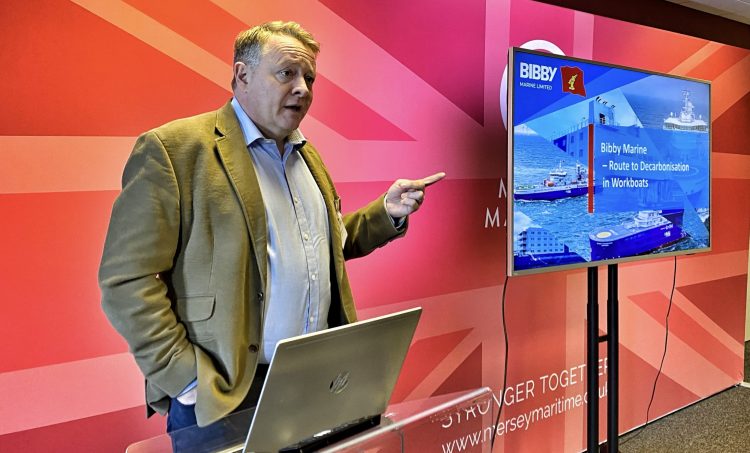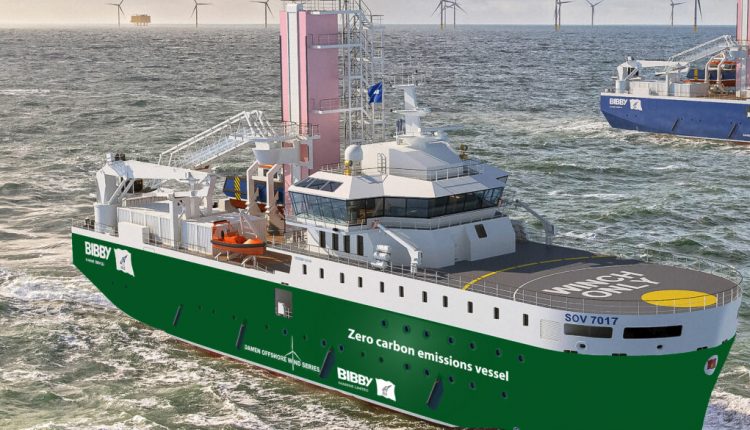Bibby looks to pioneer zero-carbon shipping
As one of Liverpool’s oldest businesses Bibby Line Group has an illustrious history but its focus is very much on the future and through its Bibby Marine division it is looking to be a net zero carbon shipping pioneer. Tony McDonough reports

When the first ship owned by Liverpool business Bibby Line set sail in 1807, in fact when Bibby was founded, French emperor Napoleon was invading Portugal and ships were wind powered.
In the intervening 215 years the company’s vessels have been powered by sail, steam and oil. Now the threat of climate change means its ships are navigating a fourth age of propulsion where decarbonisation is the name of the game. And it is one in which Bibby aims to be a world leader.
These days Bibby Line Group, as it is now known, is a diversified business operating in the financial services and infrastructure sectors. But maritime remains at the heart of the business through its marine division.
Chief executive of Bibby Marine, Nigel Quinn, addressed an audience of Liverpool city region maritime businesses in the Face-2-Face networking event held monthly by industry cluster organisation Mersey Maritime.
Nigel outlined progress in the company’s WaveMaster Zero C project which is working to develop zero carbon service operation vessels (SOVs). It currently operates two SOVs, which came into service in 2016.
They are designed to support maintenance of offshore facilities such as oil and gas platforms and large wind farms, such as those in Liverpool Bay. They are at sea for up to 30 days at a time. They serve as both working platforms for the teams servicing the offshore assets and accommodation.
“They have very big power needs,” said Nigel. “Each vessel generates 6-7 MW of power. In the course of a year both vessels will use enough energy to power 800 homes and 18m miles of car journeys.
“If we were to build another five or 10 of these boats you might say ‘well ok it’s only a few’ but when you say ‘well it’s the equivalent of building two new cities’ you start to see the scale of the issue.
“They are the best in class in terms of fuel efficiency but they still burn an awful lot of fuel and create an awful lot of carbon. The Wavemaster fleet of two vessels creates as much carbon per annum as nearly 2,000 three bed homes.”
With grant funding from Government project, MarRI-UK, Bibby Marine, along with a number of industry partners such as shipbuilder Damen and Lloyds Register, has carried out research and development work as part of WaveMaster Zero C to look at a new generation of vessels that utilise alternative fuels.
READ MORE: Essar to build £1bn hydrogen hub
READ MORE: Can hydrogen deliver net zero?
Nigel explained: “We are actually looking at two things – building new vessels that can be flexible enough to be adapted as the technology moves on – and retrofitting our existing vessels so we can keep them in service.
“Obviously we are looking specifically at the offshore vessels that we use but when we get this right we are talking about something that can be used for ships around the world of similar size that do different things. We are creating something that will be transferable.”
Bibby Marine is currently looking at four specific zero/very low carbon fuel types and Nigel adds that the prototype vessel may well end up incorporating two or three of these fuels, rather than just picking one. They are
- Hydrogenated vegetable oil (HVO).
- Green methanol.
- Electric.
- Hydrogen, Gaseous / Liquid
“All of these different fuels have their pros and cons,” added Nigel. “Which is why we will probably end up with a mix rather than just one. For example, HVOs are currently more expensive and how you source it sustainably matters.
“If it comes from food waste, fine. But if you are using arable land to produce it then you are using up a resource for growing food. The IMO found that if shipping alone switched to HVO then 40% of the world arable land would be needed to grow crops for fuel supply – so sustainable is equally as important.


“There is likely to be an abundance of hydrogen to use as a fuel source in the coming years but the problem with hydrogen is its lower energy density compared to conventional diesel. It means our vessels would have to be twice the size they are now.
“There is something being developed called a liquid organic hydrogen carrier (LOHC). This is certain to play a role in the fuel of the future. It would allow us to use existing diesel tanks and infrastructure to store and move the hydrogen. We think this will come into play in the next four to five years and we are really excited about it.”
Electric technology is available now but, again, the size and costs of batteries needed to power even a medium-sized ship is currently high relative to internal combustion engines. However, Nigel and his team have been talking to experts at Lancaster University who are developing ways to get more capacity and energy out of sodium batteries.
“At the moment we could get a vessel out to sea using a battery but with no infrastructure at sea, couldn’t charge it to bring it back again,” said Nigel. “But the cost is coming down quickly and so there will come a point when that becomes a more viable option. Both in-field and shore side charging are projects being accelerated right now.”
Bibby Marine has a stated ambition in seeing the first of its WaveMaster Zero C during this decade. Nigel added: “We are looking ahead to 2025 and beyond.
“At some stage, we will have to deliver on the theory, in order to achieve both the UK Zero Ship Strategy but also it’s simply the right thing to do in order to help our planet recover from the impacts of the fossil fuel usage age.
“And it is no good just building one vessel and then having to build another one with a different design further down the line. We have to keep the benefits of scale by developing assets that are flexible and can be retrofitted later as new technologies are developed and improved.
The other big issue here is skills. We have a generation of engineers who can build and fix diesel engines. But we will need to train a new generation of engineers who can service the vessels we are developing with high voltage or fuel cell technologies. And we have to start doing that now.”

